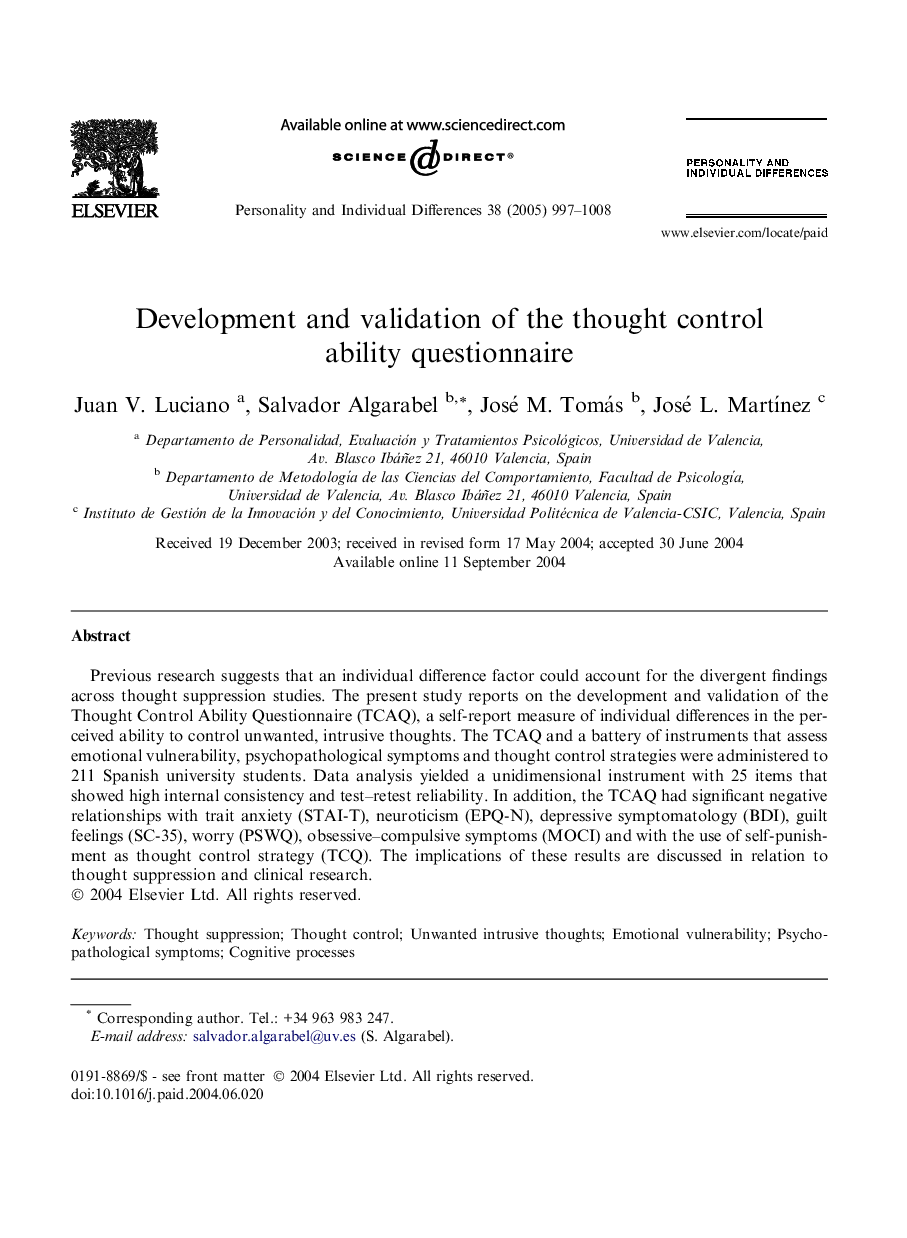| Article ID | Journal | Published Year | Pages | File Type |
|---|---|---|---|---|
| 10440679 | Personality and Individual Differences | 2005 | 12 Pages |
Abstract
Previous research suggests that an individual difference factor could account for the divergent findings across thought suppression studies. The present study reports on the development and validation of the Thought Control Ability Questionnaire (TCAQ), a self-report measure of individual differences in the perceived ability to control unwanted, intrusive thoughts. The TCAQ and a battery of instruments that assess emotional vulnerability, psychopathological symptoms and thought control strategies were administered to 211 Spanish university students. Data analysis yielded a unidimensional instrument with 25 items that showed high internal consistency and test-retest reliability. In addition, the TCAQ had significant negative relationships with trait anxiety (STAI-T), neuroticism (EPQ-N), depressive symptomatology (BDI), guilt feelings (SC-35), worry (PSWQ), obsessive-compulsive symptoms (MOCI) and with the use of self-punishment as thought control strategy (TCQ). The implications of these results are discussed in relation to thought suppression and clinical research.
Keywords
Related Topics
Life Sciences
Neuroscience
Behavioral Neuroscience
Authors
Juan V. Luciano, Salvador Algarabel, José M. Tomás, José L. MartÃnez,
